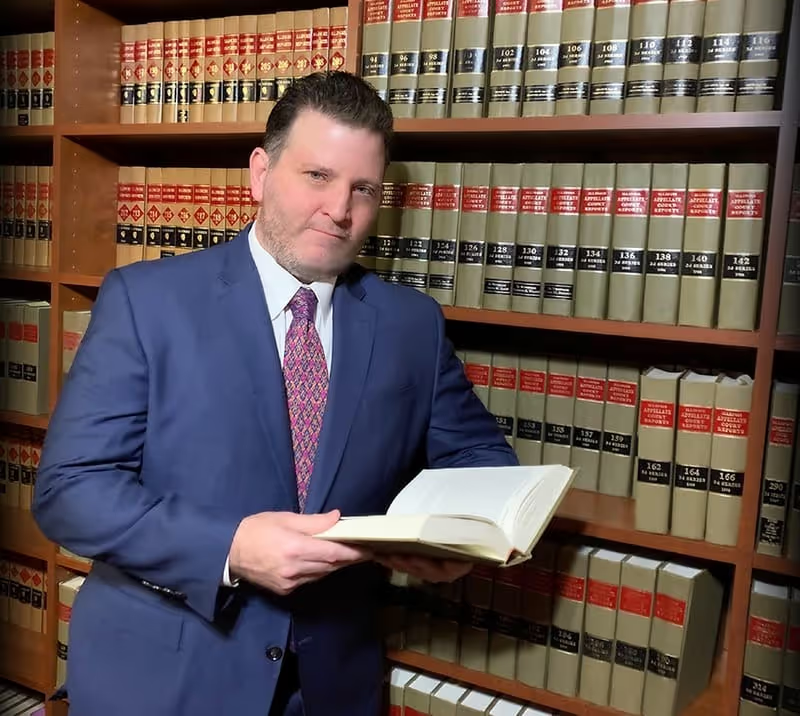Contracts, Quasi-Contracts, Quantum Meruit, Unjust Enrichment, and Other Remedies
For more than 25 years, I have represented hundreds of clients in claims involving contracts, breach of contract, quasi-contracts, quantum meruit, unjust enrichment, and similar matters. I have litigated cases throughout Illinois on behalf of individuals, family businesses, and small businesses seeking compensation for services rendered or benefits conferred. My practice has litigated cases in the following counties: Cook, DuPage, Lake, Will, McHenry, Kane, Ogle, Rock Island, Kankakee, Kendall, Grundy, DeKalb, Boone, Winnebago, LaSalle, and other counties throughout Illinois.
Over the years, clients have asked me many questions:
- What is a contract?
- Does my contract have to be in writing?
- Can I recover without a contract?
- Can I recover without a written contract?
- What damages can I recover?
- What types of contracts exist?
- Can I force someone to perform contractual duties?
- Can I recover money if I benefited someone without a contract?
- What must I prove to establish a contract exists?
- What constitutes breach of contract?
- Does a minor breach void the entire contract?
- What remedies exist for breach of contract?
- Do I have a duty to minimize damages?
- What is unjust enrichment?
- What is quantum meruit?
- What is a quasi-contract?
- What are contracts implied in law versus fact?
I'll address these questions and provide fundamental information about contract-related disputes. Remember, each case turns on specific facts, so contact an attorney promptly if you have a claim or face a lawsuit.
What Is a Contract?
A contract is a legally binding agreement between two or more persons creating mutual obligations enforceable by law. A common misconception I hear constantly: "I cannot recover anything because I have nothing in writing." Let me be very clear: YOU DO NOT NEED SOMETHING IN WRITING.
The legal system enforces written, spoken, and implied contracts equally. Most contracts are NOT WRITTEN, and most contract lawsuits don't involve written agreements. Courts focus on whether one person conferred a benefit that another person accepted. While written agreements may simplify litigation, you absolutely don't need anything in writing.
Even if you cannot meet the legal definition of a contract, other legal theories allow recovery for benefits or services provided. If you believe you're entitled to compensation for benefits you provided, speak to an attorney immediately—they can help you recover what you're owed.
Contracts
People enter contracts because they want the benefit of their bargain. To get that benefit, each party generally performs their obligations. Thus, most contracts are discharged by performance, not breach. However, when a valid agreement exists and duties haven't been discharged, breach of contract occurs.
Elements of a Contract
Under Illinois law, proving a contract requires three essential elements:
- OFFER: A promise to do something or refrain from doing something within a certain timeframe
- ACCEPTANCE: The other party's agreement to receive the benefit
- CONSIDERATION: Something of value exchanged between parties (money, services, or promises), representing the benefit each party receives or expects
Breach of Contract
A breach of contract is a violation of any agreed-upon term or condition. This occurs when one party fails to fulfill obligations, such as making payment or delivering promised assets. Breach allows the non-breaching party to seek remedies through litigation.
Not all breaches warrant recovery. There are two types:
Minor Breach: Failure to perform a small contract detail. The entire contract isn't breached and can still be substantially performed. Minor breaches won't support an actionable claim because parties can still perform and receive their bargained-for benefit. Examples include slight delays, wrong color cake, or minor mistakes.
Material Breach: Substantial breach that essentially cancels the contract by rendering performance impossible. This significant failure undermines the contract's purpose, making it unworkable and causing substantial damage to the non-breaching party.
Remedies for Breach of Contract
Contract law aims to place the harmed party in the same economic position they would have occupied without the breach. The purpose isn't punishment but making the non-breaching party whole.
Damages
Financial compensation to restore the injured party's position:
- Expectation Damages: Places the injured party where they would have been had the contract been performed
- Reliance Damages: Compensates investments made in reliance on contract performance
Specific Performance
When damages are inadequate, courts may order the breaching party to fulfill their obligations. This limited remedy applies only to unique items (personal property or real estate). It's unavailable for personal services (which would constitute involuntary servitude) or non-unique items where the party can purchase substitutes.
Injunction
A court order directing someone to stop prohibited actions. In contract law, injunctions prevent breach—for example, enforcing non-compete agreements or rights of first refusal. Injunctions are discretionary remedies, particularly useful when monetary damages are inadequate or harm is irreparable. Violating an injunction may result in contempt charges and imprisonment.
Restitution
Allows the non-breaching party to cancel the contract and recover payments or property provided to the breaching party. Restitution restores what one party gave to another, preventing unjust enrichment. It may involve returning specific property, granting substitute rights, or paying monetary equivalents.
Duty to Mitigate Damages
The non-breaching party must take reasonable steps to minimize losses. Courts won't compensate for easily mitigated damages. When breach occurs, you must attempt to stop ongoing harm through reasonable actions—you cannot passively allow damages to accumulate.
Quasi-contracts: Contracts Implied by Law
Even without an established contract, the law provides remedies when you benefit another person.
Quasi-contracts (constructive contracts) enforce legal duties when no actual contract exists. They're not true contracts but are grounded in implied promises to pay for received value. These fictitious contracts, governed by equity principles, prevent unjust enrichment.
Key principles:
- Based on preventing unjust enrichment at another's expense
- No actual agreement required
- Liability imposed to prevent injustice
- Arises from facts and circumstances, not party consent
- Cannot exist where an express contract covers the same subject matter
To establish unjust enrichment, plaintiffs must prove:
- Defendant retained a benefit
- To plaintiff's detriment
- Retention violates principles of justice, equity, and good conscience
Recovery doesn't require wrongdoing or fiduciary duty—only that retention of the benefit would be unjust.
Contracts Implied in Fact
These are true contracts where agreement is inferred from facts, circumstances, and conduct rather than express words. They contain all elements of express contracts but are established through actions rather than oral or written agreements.
Key distinctions:
- Require promissory expression showing intent to be bound
- Cannot be thrust upon someone without consent
- Parties fix terms and liability limits
- True contracts, unlike quasi-contracts imposed by law
Unjust Enrichment
This doctrine, similar to quantum meruit, provides alternative relief focusing on benefits received and retained.
Elements include:
- An enrichment
- An impoverishment
- Relation between enrichment and impoverishment
- Lack of justification
- No remedy provided by law
Damages focus on defendant's retained benefit rather than plaintiff's expenditures. If plaintiff spent $100 providing work that unjustly benefited defendant by $1,000, plaintiff might recover more than the $100 expended.
Example: X hires Y to build a garage. Y also builds an unrequested driveway. X must pay for the driveway's value to avoid unjust enrichment.
Quantum Meruit
Meaning "as much as he deserves," quantum meruit describes recovery for reasonable value of non-gratuitous services where no contract dictates payment.
To recover under quantum meruit, plaintiff must prove:
- You performed services benefiting defendant
- Services weren't gratuitous
- Defendant accepted services
- No contract existed prescribing payment
Recovery equals the reasonable value of work providing measurable benefit to defendant. However, preliminary services provided during negotiations with hopes of obtaining a contract typically don't warrant quasi-contractual relief.
The doctrine ensures fairness—those benefiting from another's labor and materials shouldn't be unjustly enriched. Courts imply promises to pay reasonable amounts even without specific contracts.
Remember: Contract disputes depend on specific facts. Whether pursuing claims for breach of contract, quantum meruit, or unjust enrichment, consult an attorney promptly to protect your rights and maximize recovery opportunities.





